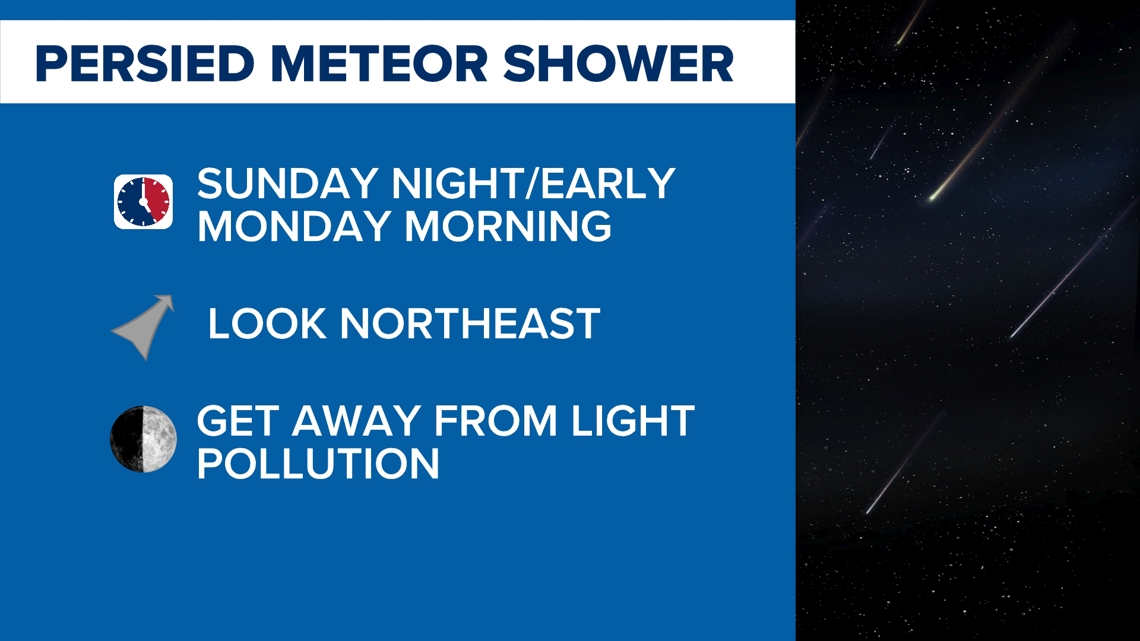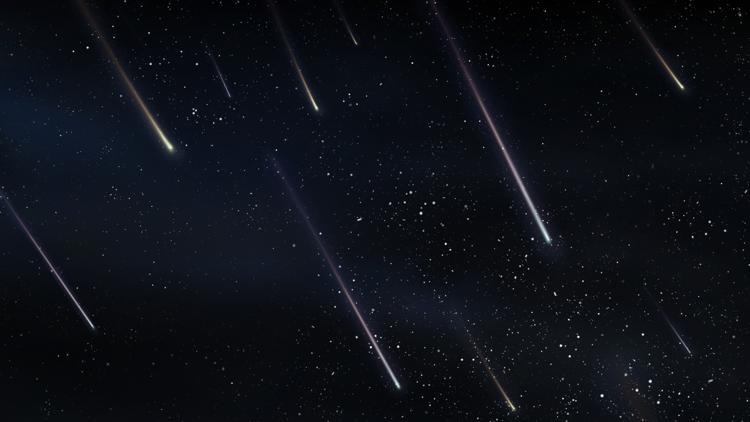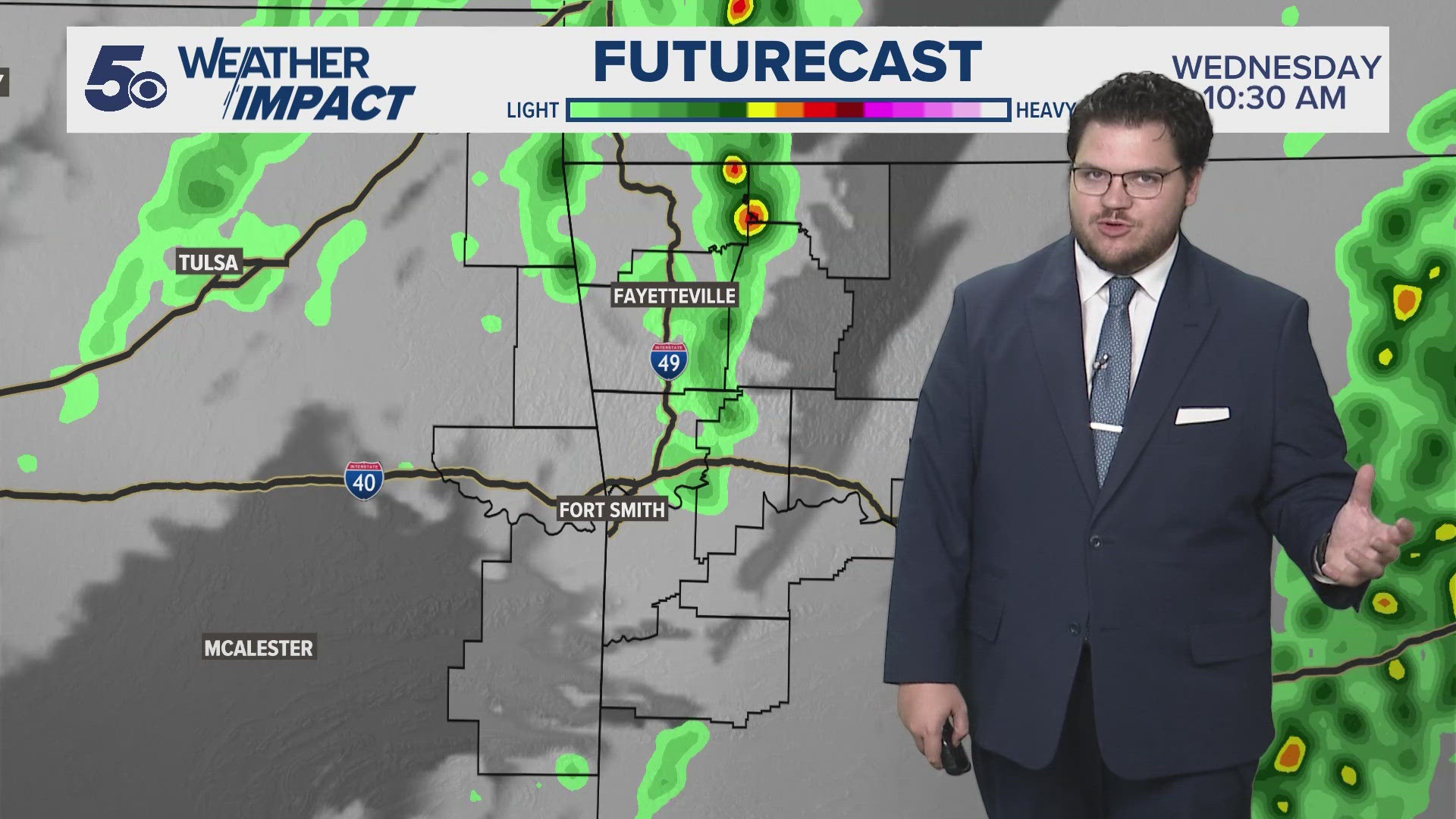FAYETTEVILLE, Ark. — The Perseid Meteor Shower is reaching its peak this weekend, which means hundreds of shooting stars will be streaking across the sky. However, heavy cloud cover and rain are filling in the weekend forecast in 5COUNTRY, which could block our view of the event.
According to NASA, the peak time to view the celestial event is overnight Aug. 11 into the early morning hours of Aug. 12.
You can find an hour-by-hour forecast for your location by clicking here.
What are The Perseids?
The Perseids are an annual meteor shower that typically starts in mid-July and lasts into early September. It is most easily seen at its peak in mid-August.
NASA explains that the meteor shower is the result of Earth passing through the dusty comet trail left behind by comet 109P / Swift-Tuttle.
The Perseid Meteor Shower is generally considered the biggest meteor shower of the year thanks to its long, bright lines of light that trail across the night sky behind the meteors themselves. The Perseids are also known for their many showers with as many as 50 to 100 meteors seen per hour.
Where to see them?
As the name might suggest, the Perseids seem to appear from the constellation Perseus, which sits to our northeast. The best time to view the meteor shower is expected to be between midnight on Sunday and 4 a.m. on Monday. Finding a nice dark spot away from any lights will result in the best views.
Will we see The Perseids in 5COUNTRY?
Unfortunately for those of us in Arkansas and Oklahoma, shower chances are increasing as we move further into the weekend. As of now, it seems 5COUNTRY will be mostly covered by overcast skies during the peak hours of the Perseids. Spotty showers are expected to pick up again on Monday, which means clouds will continue to thicken into Monday morning.
But don't lose hope just yet! The Perseid's peak comes with enhanced meteor activity for a number of hours before and after Sunday night into Monday morning. This means if you happen to miss out on seeing the meteor shower over Sunday night, try again Monday night around the same time! By Monday night, clear skies will be back and the chance of seeing a few shooting stars improves greatly.


Watch 5NEWS on YouTube.
Download the 5NEWS app on your smartphone:
Stream 5NEWS 24/7 on the 5+ app: How to watch the 5+ app on your streaming device
To report a typo or grammatical error, please email KFSMDigitalTeam@tegna.com and detail which story you're referring to.



